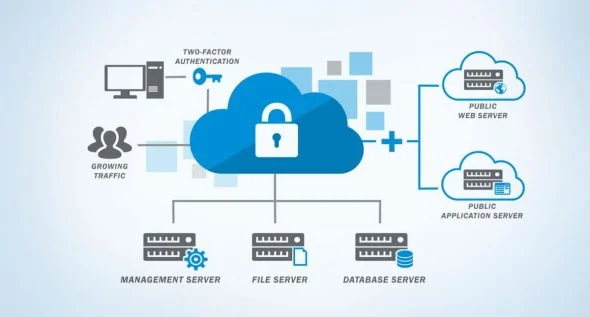
Cloud services have become increasingly important in today's digital age, as more and more businesses and individuals turn to cloud-based solutions for data storage, application development, and collaboration. Here are some reasons why cloud services are so important:
Cloud services allow you to scale your resources up or down depending on your business needs, without having to invest in expensive hardware or infrastructure
By using cloud services, you can save money on hardware, software, and maintenance costs, as well as reduce the need for IT staff to manage and maintain on-premises infrastructure.
Cloud service providers typically invest heavily in security measures to protect their customers' data from cyber threats and attacks.
Choosing cloud services can provide numerous benefits to businesses of all sizes, including improved control over spending, a more streamlined supply chain, and increased flexibility to adapt to changing market conditions. Here are some key reasons to consider using cloud services

Cloud services offer businesses a more predictable and manageable expense model, with usage-based pricing and the ability to scale up or down as needed.

Cloud services can also help businesses to streamline their supply chain and reduce overhead costs by outsourcing IT infrastructure to third-party providers.

Cloud services enable businesses to be more agile and responsive to changing market conditions by providing on-demand access to IT resources.
Cloud services providers invest heavily in security measures to protect their customers' data from cyber threats and attacks. This can include encryption, firewalls, and other security measures to ensure that your data is always protected.
By leveraging cloud services, businesses can stay competitive, and adapt to changing market conditions while also providing a better user experience for their customers.

Cloud services refer to the delivery of computing services, including servers, storage, databases, software, analytics, and other tools, over the internet or "the cloud." Instead of hosting these resources on local hardware or infrastructure, cloud services providers make them available to customers through a network of remote servers and data centers. Customers can then access and use these services on a pay-per-use basis, without having to invest in their own hardware or infrastructure.

CDN

DNS

DDoS protection

API Protection

Rate Limiting

Load Balancing

Remote Browser Isolation

Workers KV
Cloud services refer to the delivery of computing services, including servers, storage, databases, software, and other tools, over the internet or "the cloud." These services are provided by third-party providers who manage the underlying infrastructure, security, and maintenance of the services. Customers can then access and use these services on a pay-per-use basis, without having to invest in their own hardware or infrastructure.
Some of the key benefits of using cloud services include cost savings, scalability, flexibility, and accessibility. Cloud services can help businesses to reduce their IT infrastructure costs, scale up or down their resources as needed, and access their applications and data from anywhere with an internet connection.
Cloud services providers typically have robust security measures in place to protect their customers' data and applications, including encryption, firewalls, access controls, and regular security audits.
